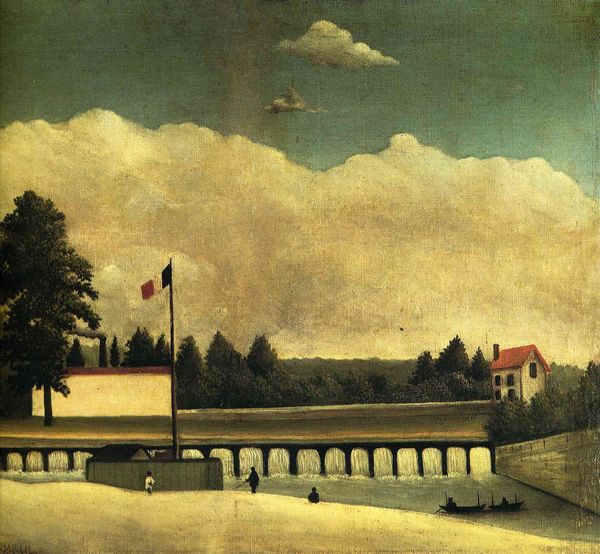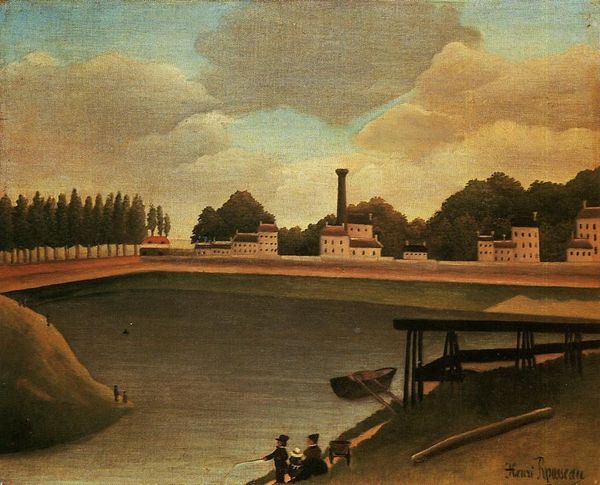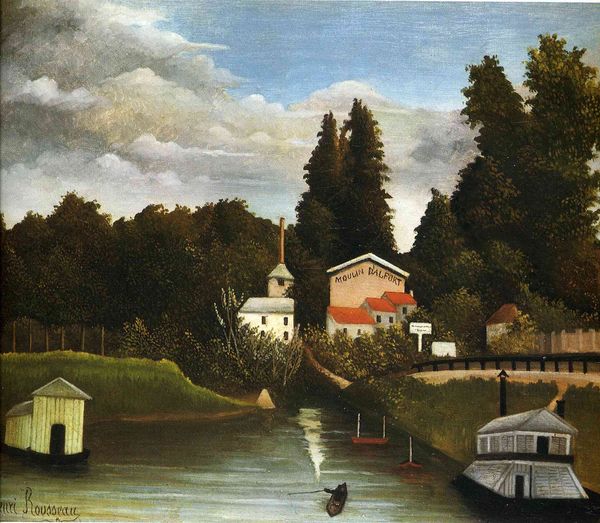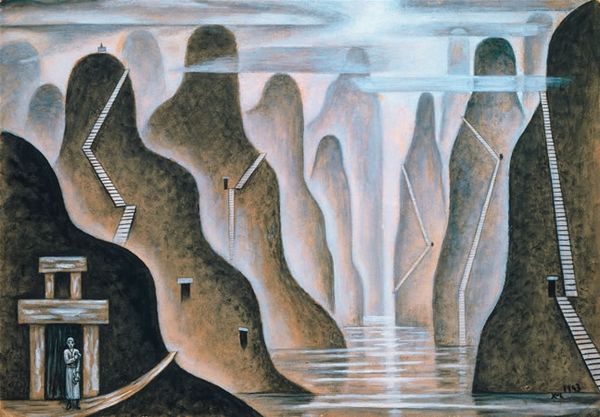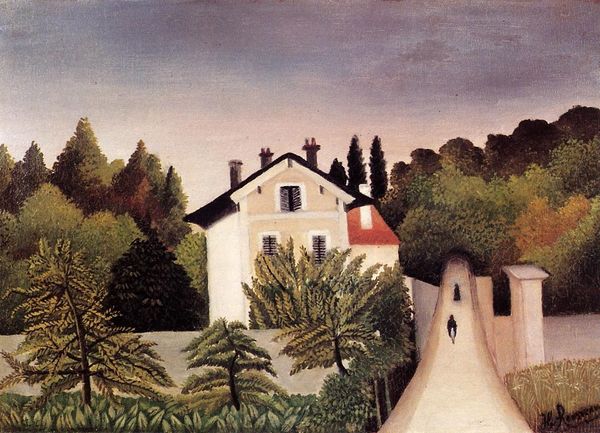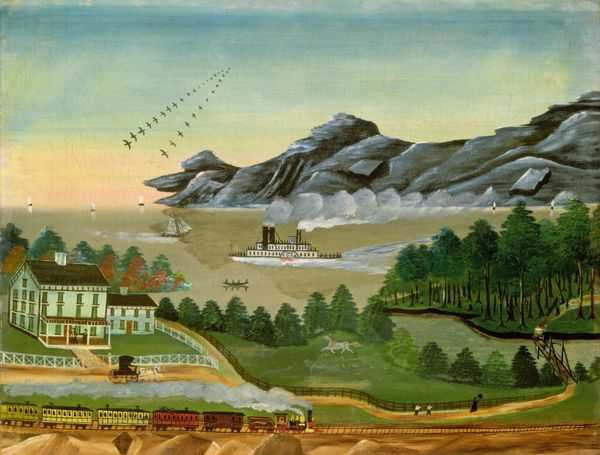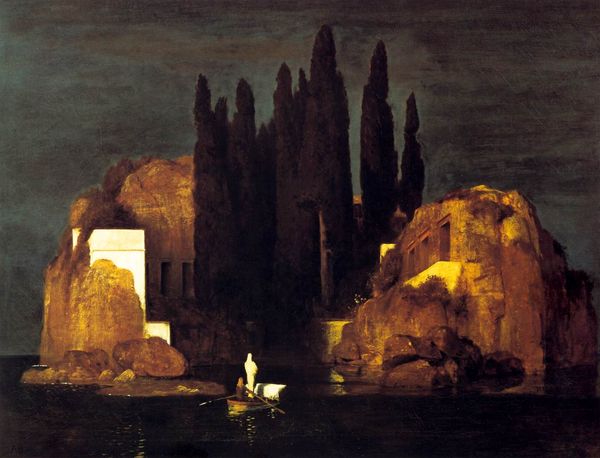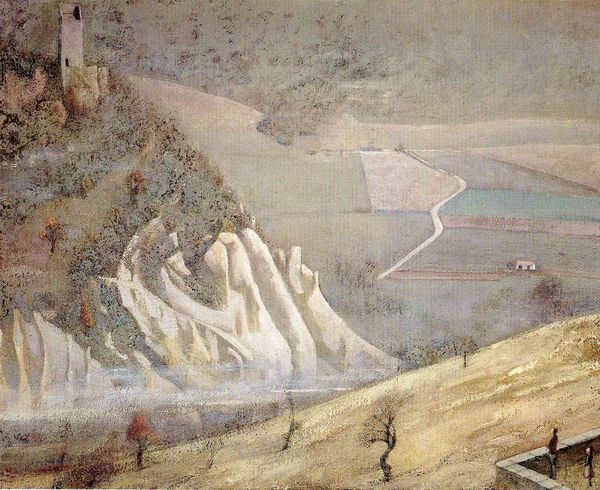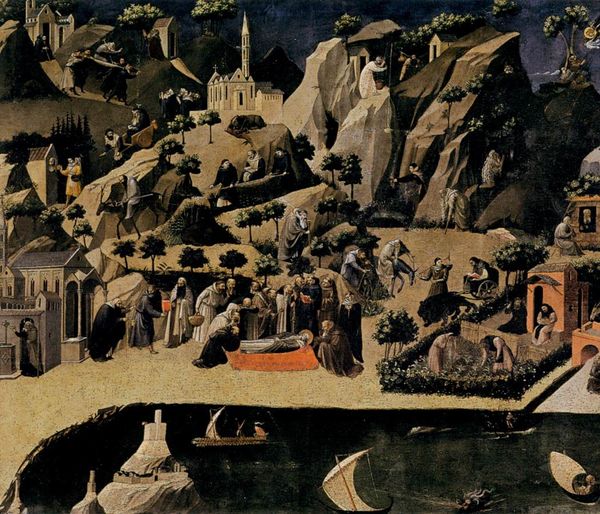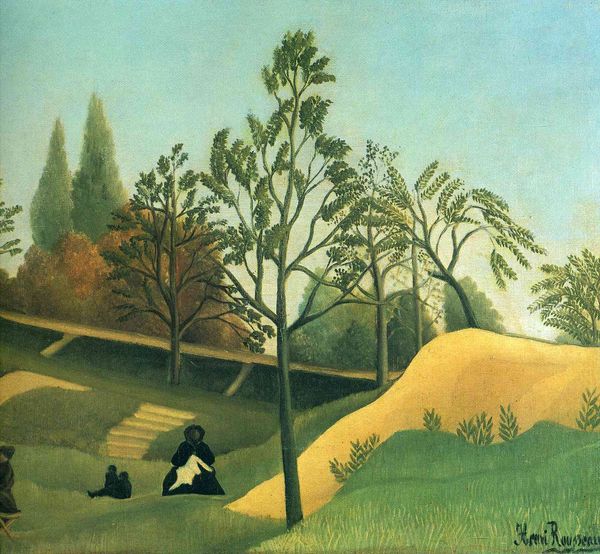
Copyright: Public domain
Curator: Rousseau's "Bathing at Alfortville" from 1904 presents an intriguing slice of early 20th-century life using oil paint. Editor: My first impression is that this painting exudes a sort of wistful melancholy. The ochre hues, the stark verticals of the factories, and the diminutive figures contribute to a rather sobering atmosphere. Curator: Precisely, there is something profoundly still, and subtly off about the image. Observe how the composition is built upon layers of horizontal lines: the riverbank, the bridge, the treeline – all meticulously organized, yet seemingly detached from each other, undermining the idea of spatial depth. Editor: Yes, that flattening effect lends it a certain dreamlike quality. Knowing the socio-economic climate of the period adds layers, though. Factories began dominating city skylines and their effect on the landscape changed leisure activities. What appear to be idyllic swimmers could represent a population adapting to an industrial age. Curator: The industrial presence is a very good point. The visual symbolism, in a post-Impressionistic context, can lead to a critique on the evolving relationship between humanity and industrial progression, particularly during the burgeoning 20th century. Note how the plumes from the factory rise higher than any of the natural forms within the work. Editor: So, it acts almost like an observation on modern life, documenting its change through its visual components. This factory overshadowing recreation acts as commentary, and as a point of view about those changes and the industrial expansion and the labor which helped to support this period of growth. The figures, though they occupy the space in terms of form, seem dwarfed when you consider their role within this narrative, wouldn’t you agree? Curator: Absolutely. Rousseau uses line and form not to reproduce reality faithfully, but rather to evoke an atmosphere, an underlying sense of detachment amid an evolving social backdrop. The river, which once sustained traditional society is depicted as a leisure space dominated by nearby manufacture. Editor: I am now less struck by an initial emotional response of melancholy and see it as more as a kind of document. Something to be studied and contextualized, while it acts as something of a historical marker for modern social change and expansion of a newly modern era.
Comments
No comments
Be the first to comment and join the conversation on the ultimate creative platform.
